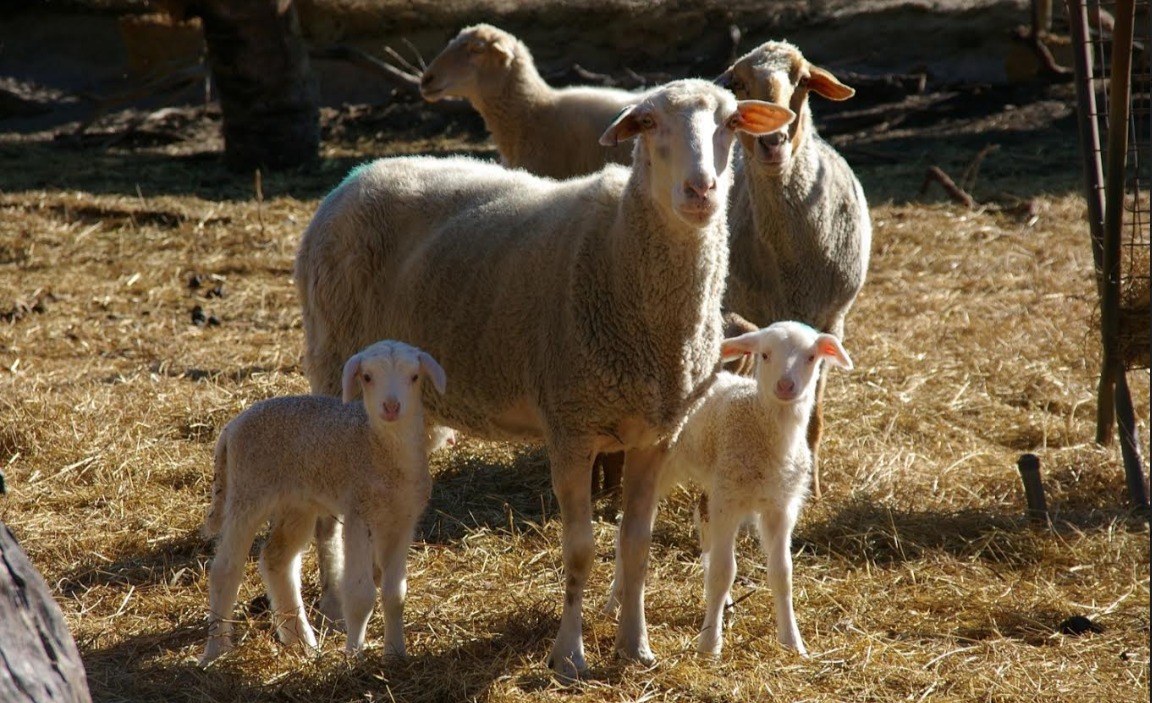
UWA sheep temperament research has found a genetic link.
WESTERN Australian research has raised the prospect of a genetic test for sheep temperament that could also have implications for human stress assessment.
A study at the University of Western Australia has found that genetics play a large factor in determining the temperament of sheep and how they react to stress.
The scientists analysed sheep DNA and found the changes in sequences of Tryptophan Hydroxylase gene could alter the protein structure of this enzyme, ultimately affecting how sheep respond to stress.
Lead researcher PhD student Luoyang Ding from the UWA School of Agriculture and Environment and the UWA Institute of Agriculture said the scientists focused on genes linked to serotonin and oxytocin — the chemicals that make us feel happy.
Mr Ding was under the supervision of Associate Professor Dominique Blache, Professor Shane Maloney, Associate Professor Jennifer Rodger and Professor Mengzhi Wang.
“We found the gene markers (the special changes in Tryptophan Hydroxylase sequences) linked to the production of serotonin resulted in sheep that were calmer in nature and dealt with stress better.
“By sequencing Tryptophan Hydroxylase gene in sheep at an early age, we can get an indication of their stress levels and what could come later on as the sheep get older,” Mr Ding said.
Mr Ding said one big problem in farming was that stress in animals made practices more costly and time consuming and it was more difficult to care for stressed animals.
“The quality of the meat is also severely impacted by stress, with anxious sheep producing much tougher, darker and drier meat,” he said.
“We hope these findings can help farmers improve the care of sheep and farming efficiencies by being able to understand the temperament of their sheep at an early age.”
Many Australian sheep breeders assess their sheep for temperament, by noting flight distance and behaviour of ewes during handling, but as yet there is not a reliable genetic test for an animal’s likely stress profile.
New South Wales Merino breeder Mark Mortimer at Centre Plus Merinos said the flock’s ewes are scored for temperament and their reaction to human interaction as young sheep in a race and while isolated with their lambs in a pen. He said heritability of temperament is low compared to other traits, but he a reliable genetic test for the trait would be valuable as not just because it might mean sheep were happy, but because a highly agitated stress animal is dangerous to work with.
Victorian composite breeders Matt and Tanya Tonissen, like many stud breeders, also rank their ewes on temperament at lambing time, when weighing and tagging newborn lambs in the paddock.
Great example of maternal attributes we look for in our ewes This ewe has twinned each year & gained the highest grade mother score possible pic.twitter.com/Cz0JG5lNSO
— Tanya Tonissen (@ChromeSheepStud) July 22, 2017
Could gene markers for human stress tolerance be next?
Mr Ding said it would also be interesting to find out if the gene markers could be used to estimate the risk of anxiety early on in humans.
“It is clear that there is a definite chemistry at play in individuals who get stressed or anxious easily,” he said.
“It would be interesting to explore whether genetic testing at an early age could predict people who may be susceptible to vulnerabilities later in life.”
The research was made possible by a China Scholarship Council – The University of Western Australia Joint Scholarship by the UWA Scholarships Committee.

Hello Ding, it would be interesting to test worm resistant sheep.
Regards
John